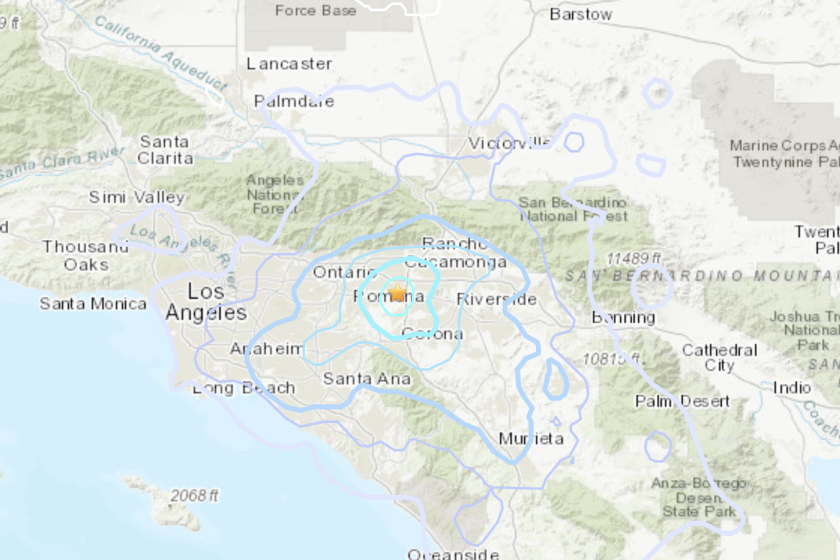Turkey Pledges $150 Million for Quake Relief in Pakistan
Moved by scenes of a disaster that has shocked relief workers and defied an effective global response, Turkey’s prime minister Friday pledged $150 million in aid to the more than 3 million left injured and homeless by the Oct. 8 earthquake.
Prime Minister Recep Tayyip Erdogan’s pledge pushed Turkey to the head of the list of international donors that are helping ease the suffering inflicted across northern Pakistan by the worst natural disaster in this country’s 58-year history.
But U.N. officials warned that the world’s response was falling far short of the billions of dollars required to feed and shelter the victims through the harsh and swiftly approaching Himalayan winter. Many survivors are still marooned in remote mountain hamlets two weeks after the devastating temblor.
The United Nations’ top humanitarian affairs official, Jan Egeland, said in Geneva that barely one-fourth of the $312 million in quake relief sought by the world body had been raised. He noted that 80% of the U.N. fund-raising goal after the Dec. 26 Asian tsunami was met within 10 days of that disaster.
U.S. officials say they have sent $17 million of their original pledge of $50 million to groups that are providing assistance on the ground. U.S. aircraft have delivered hundreds of tons of food and supplies to Pakistan, and 19 helicopters are helping to bring in supplies and evacuate survivors.
U.S. officials are also encouraging Americans to donate privately and are promoting an international donors’ conference for quake relief.
Relief agencies and Pakistani officials have been appealing worldwide for extraordinary efforts to save the lives of the 500,000 people who have not yet been reached. Egeland suggested that the international community muster massive airlifts similar to those that enabled West Berlin to get food and supplies after Soviet forces sealed off the city to try to wrest it from Allied control nearly six decades ago.
Those who have surveyed the destruction caused by the magnitude 7.6 earthquake have said it poses a logistical nightmare that dwarfs the challenges faced by relief workers responding to last year’s tsunami.
“What is impossible for any picture to convey is the sheer magnitude of this catastrophe,” U.N. Secretary General Kofi Annan said as he appealed for swift and generous donations. “This is the most challenging relief operation ever undertaken.”
More than 100 helicopters have been deployed here to ferry tents, food and doctors to isolated villages. But officials fear a second wave of deaths from untreated injuries that have become infected, as well as from the hypothermia and pneumonia that will occur due to a lack of adequate shelter in the Himalayan cold.
The North Atlantic Treaty Organization, headquartered in Brussels, has vowed to deploy more road-clearing equipment to speed rescue efforts and delivery of aid. But NATO officials acknowledge that they have few helicopters capable of operating at the elevations where thousands of survivors are stranded.
The Pakistani government has suspended tarpaulin and tent exports to help meet demand for shelters for quake survivors. But key manufacturers in Karachi and Lahore report that canvas costs have nearly doubled after the quake. They say they can produce up to 5,000 tents per day -- far short of the 8,000 daily the government is seeking.
The Office of the U.N. High Commissioner for Refugees and the International Committee of the Red Cross have shipped 83,000 tents to Pakistan, but they warn that the world supply is now depleted and five times that number are needed to keep quake victims out of the cold.
The quake death toll stands at nearly 80,000.
*
Times staff writer Paul Richter in Washington contributed to this report.
More to Read
Sign up for Essential California
The most important California stories and recommendations in your inbox every morning.
You may occasionally receive promotional content from the Los Angeles Times.











